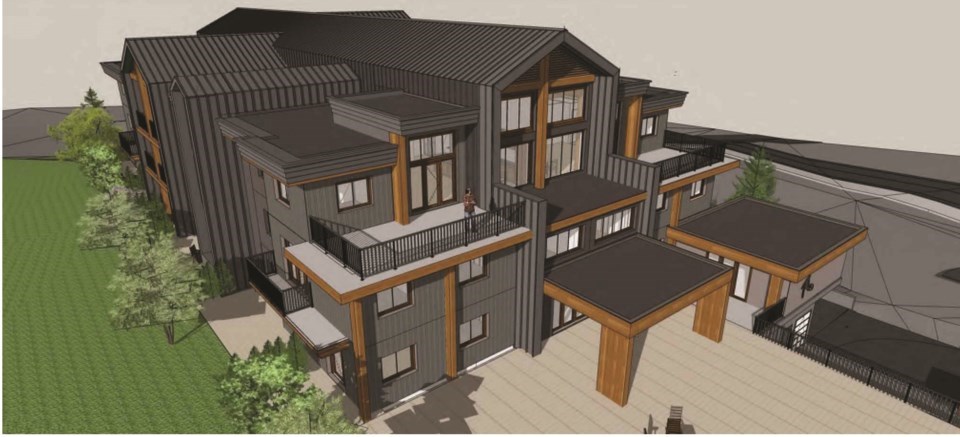If residents of Fitzsimmons Walk in Whistler’s White Gold neighbourhood had their way, a newly redesigned affordable housing project at 7104 Nancy Greene Drive would not proceed in its current form.
On Nov. 29, more than half a dozen people voiced their opinions on the 36-unit development at a public hearing held over Zoom for its rezoning.
Though many voiced unhappiness with the current design, not all are against the development so long as it addresses neighbouring residents’ concerns around parking, setbacks, loss of ecology and density.
“This project is just too large to fit the neighbourhood; 36 units should be 24 units,” said White Gold resident James Thompson at the public hearing.
“We’re not against employee housing whatsoever. We think you need it, and there’s plenty of opportunity for it to be done. But you have to take it in steps, and it has to fit with the community.”
Dave Lakey echoed that sentiment. Lakey is involved with the Fitzsimmons Walk Strata Council and believes the proposed location at the intersection of Highway 99 and Nancy Greene Drive is not a good fit for the neighbourhood.
“If we fit something in there that doesn’t fit with the community, it will stand out so blatantly … if they overpack that spot and it fails to function properly in the community, it’ll look bad for employee housing,” Lakey said.
“You’ll have other people not wanting that same situation in their backyard, and that’ll build NIMBYism and won’t fix it.”
To address concerns about parking, the Resort Municipality of Whistler (RMOW) and developer Vidorra Developments created a parking management plan to alleviate some of the issues that may arise from the development.
Eight people made comments at the public hearing in total, with opinions evenly divided. The RMOW also received a dozen written submissions from neighbouring residents, most of whom opposed the project.
First proposed on Jan. 9, 2018, the project has undergone several redesigns and shrunk substantially from 65 units to just 36 in the current proposal.
The percentage of affordable housing in the project has also been reduced, from 100 per cent of units rented at below-market rates to 50 per cent.
Many residents in favour of the project cited the housing crisis in the municipality and advocated for the project to have increased, rather than decreased, density.
“We heard loud and clear in the last election the real need for employee housing, and rental buildings help to make sure that the people working in the community have housing,” said Sue Maxwell.
“I’d much prefer to see increased density in the heart of our community than to have more sprawl further away.”
Maxwell and other proponents cited the location—close to the village centre, transit, and a grocery store—as a good spot for increasing density in Whistler that isn’t car-dependent.
“With the sheer number of people who are looking for housing here, and with the climate crisis upon us, I think it’s suitable to build buildings that aren’t necessarily car-dependent and that we focus on providing housing for the people who don’t necessarily have vehicles,” said Maxwell.
Other Whistler residents who spoke in favour of the project at the hearing also favoured increased density.
“I strongly urge, if any revisions are made, take the size of the building back closer to what was originally proposed and eliminate the parking so that more units can be provided for the same money,” said Michael Burnett.
Council will consider the public hearing submissions prior to third reading of the related rezoning bylaw.
Read more at whistler.ca/housing.




.JPG;w=120;h=80;mode=crop)